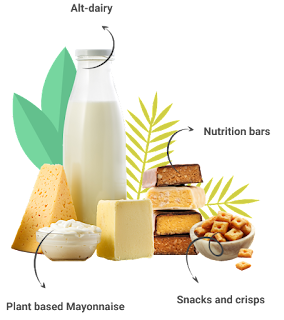Importance of Protein
Protein is necessary for the body cells to repair them and to create new cells. It is required to have essential protein in your diet for the maintenance of your body. You need to ensure that you are taking high-quality protein in your diet to have a healthy body.
Most people rely on animal protein but not people are getting conscious about their protein intake and moving to plant protein ingredients.
Plant-Based Protein
No one can deny the fact that plants are a great source of protein. Now you can access plant based protein isolates and concentrate to include the plant protein in your diet. These protein isolates are derived directly from the plants. There are various sources of plant based protein like
Mung Bean
Chickpeas
Hemp
Amaranth
When you include plant-based protein concentrates in your diet then this helps to maintain the overall health.
Health Benefits of Plant Protein
Plant-based protein is a healthier alternative to animal protein. Let's have a look at the health benefits of plant protein:
Plant protein is easy to digest: People who experience bloating with other proteins can switch to plant protein. Plant-based protein is easily digested and is allergen-free. They have a higher capacity to get absorbed in the body which indicates a higher intake of protein.
Plant-based protein isolates are effective: Plant-based protein isolates are quite effective in building good muscles health. Plant-based isolates are rich in protein and these are quite helpful for athletes along with other people.
Where to buy plant based protein?
Now with the increasing demand for plant based protein isolates, you will be able to find a lot of suppliers in India online. When choosing the plant protein concentrate supplier in India you should do a quality check. You can check out the reviews of their customers about their products. This will help you to get quality plant-based concentrate without any inconvenience.


Comments
Post a Comment